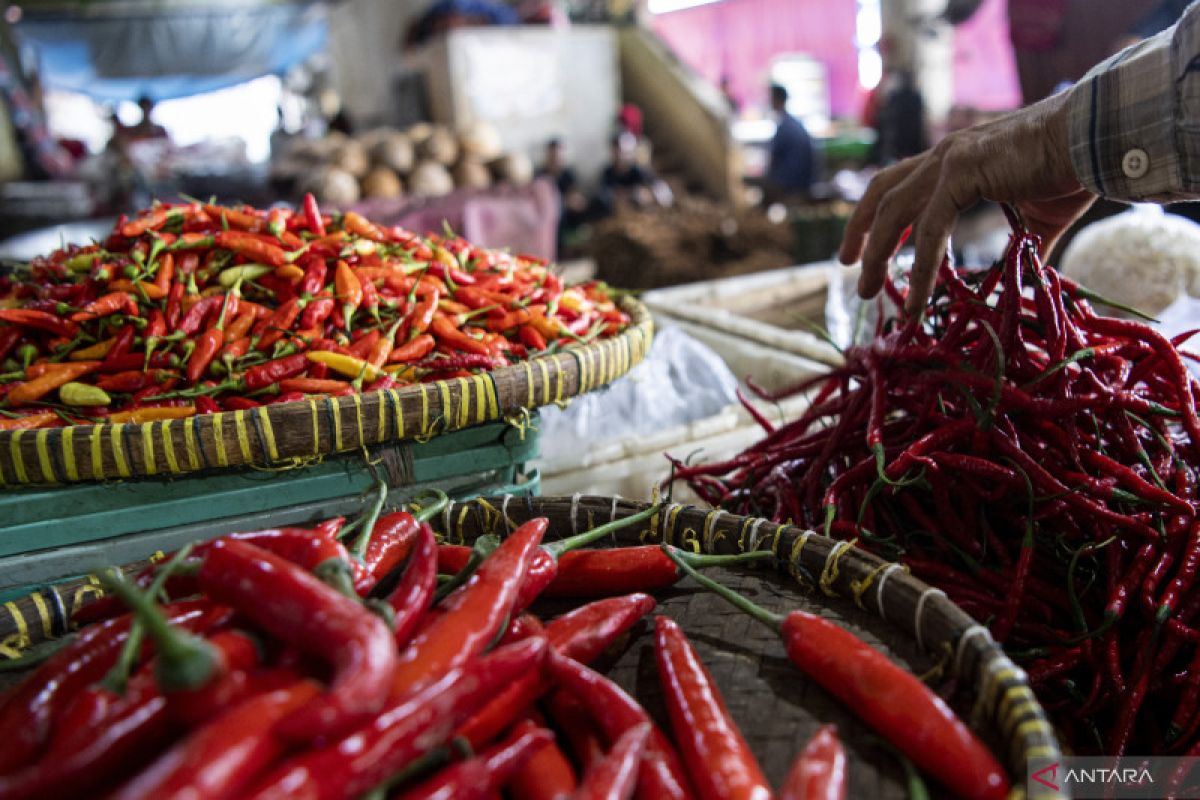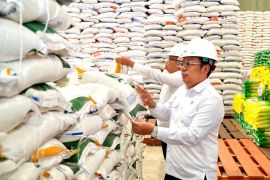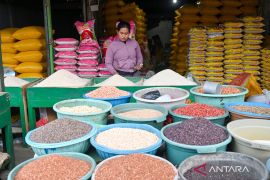The government has taken various mitigation measures to maintain the supply and smooth distribution of food commodities, so that food inflation remains under controlJakarta (ANTARA) - Finance Ministry's Fiscal Policy Agency (BKF) Head Febrio Kacaribu stated that the government's endeavors to maintain supply stability and smooth distribution of food commodities were able to control inflation in October 2022.
In October 2022, a month-to-month (mtm) deflation of 0.11 percent or annual year-on-year (yoy) inflation of 5.71 percent had been recorded, thereby being lower than the annual inflation of 5.95 percent in September 2022.
"The government has taken various mitigation measures to maintain the supply and smooth distribution of food commodities, so that food inflation remains under control," he noted here on Wednesday.
The inflation realization of 5.71 percent (yoy) in October was driven by volatile food inflation that slowed to 7.2 percent (yoy), from 9.02 percent in September and recorded deflation of 1.49 percent on a monthly basis.
The pricing of horticultural food products continued a downward trend in the midst of rising rice prices, while propagation of the impact of the fuel price hike continued to shrink, so spatially, inflation occurred in 29 cities of the consumer price index (CPI).
The abundance of horticultural food stocks pushed down the prices of commodities, such as chili, poultry, and tomato products. Meanwhile, rice prices have increased due to the scarcity of fertilizers and the influence of weather that disrupts rice production during the dry season.
Kacaribu said the government's efforts to maintain food supply and distribution through the use of various budgets, such as for food security and food infrastructure, had aided in suppressing inflation.
Related news: Jokowi urges NFA to mobilize farmers' production stocks
Regional incentive funds (DID) provided to regional governments have also proven effective in encouraging regions to work harder in controlling inflation in their regions.
On the other hand, core inflation continued its moderate upward trend, reaching 3.3 percent, as compared to the previous year, which increased slightly by 3.2 percent as compared to the previous month (yoy).
The increase was driven by rising inflation in several expenditure groups, such as housing, transportation, education, and food and beverage and restaurant services.
However, Kacaribu said that the increase in core inflation, which reflected an increase in overall domestic demand, was in line with the improving conditions of the pandemic.
Meanwhile, administered price inflation moved steadily at 13.3 percent (yoy), driven by the continued impact of gasoline and diesel fuel price adjustments in September.
Related news: Govt moves to resolve supply disruptions to rein in inflation
"Additional social assistance, in the form of direct cash assistance and wage subsidy assistance, continues to be distributed by the government to maintain the people's purchasing power," he said.
Kacaribu made assurance of the government's continued efforts to control inflation at both the central and regional levels, especially to reduce the impact of fuel price hikes.
Market operations are also increasingly being held in various regions to maintain food price stability through coordination between the Central Inflation Control Team (TPIP) and the Regional Inflation Control Team (TPID).
"The TPIP and TPID succeeded in maintaining volatile food inflation. This good performance needs to be maintained and improved. Going forward, inflationary pressures related to seasonal effects, especially the rainy season, must still be watched out for together," Kacaribu remarked.
Related news: National Food Agency continues to be vigilant about food supply
Related news: Jakarta collaborating with neighboring regions to maintain food supply
Translator: Astrid Faidlatul Habibah, Katriana
Editor: Fardah Assegaf
Copyright © ANTARA 2022












